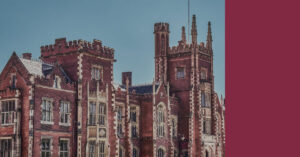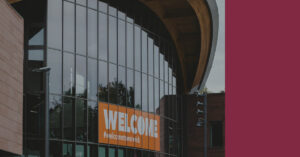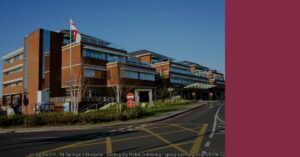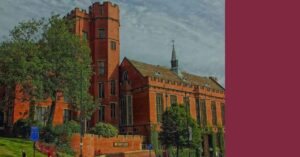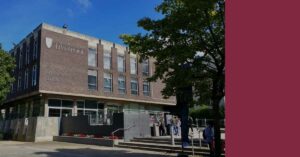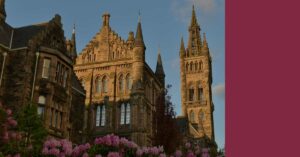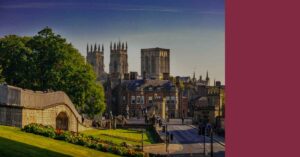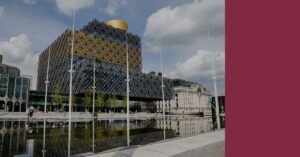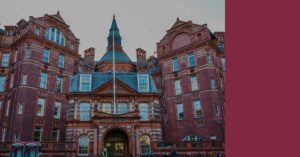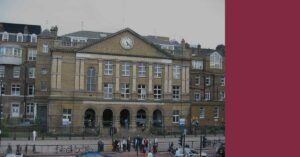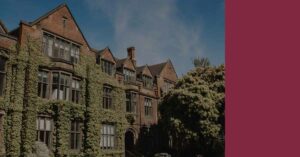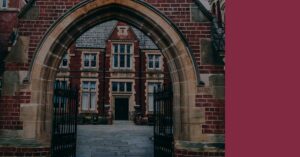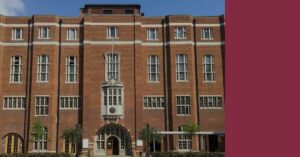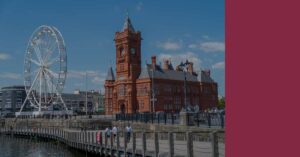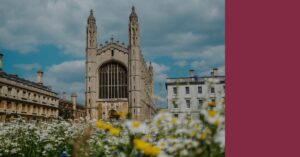Welcome to our UK Medical School Review series. In this series, we work with current students to produce an in-depth overview of each UK Medical School, covering what it is like to study there, how the course looks and what you need to get in.
Today, we are focussing on Edinburgh Medical School, the second-highest-ranked Medical School in Scotland. Abishek, an Edinburgh Medic, shares his experiences and insights as a current student throughout.
Let’s get started with the history of Edinburgh Medical School…
Overview Of Edinburgh Medical School
About Edinburgh Medical School
University of Edinburgh Medical School is the oldest medical school in the UK, and one of the oldest in the English-speaking world, dating back to 1726 where it was formed during the Scottish Enlightenment. It has contributed hugely to success in the teaching of Medicine and surgery through the introduction of the first teaching hospital. In the 18th century ‘The Edinburgh Model’ was introduced as a model of medical teaching in which Edinburgh offered the most extensive selection of courses in any British University.
Nowadays, Edinburgh has adopted a more formal university medical education curriculum and offers a 6-year Medicine course (MBChB) that includes an intercalated Medical Sciences degree in Year 3. There is no 4-year fast-track graduate programme offered at Edinburgh, however, graduate entry allows progression directly from Years 2 to 4, waiving the Year 3 research-based study.
Edinburgh Medical School
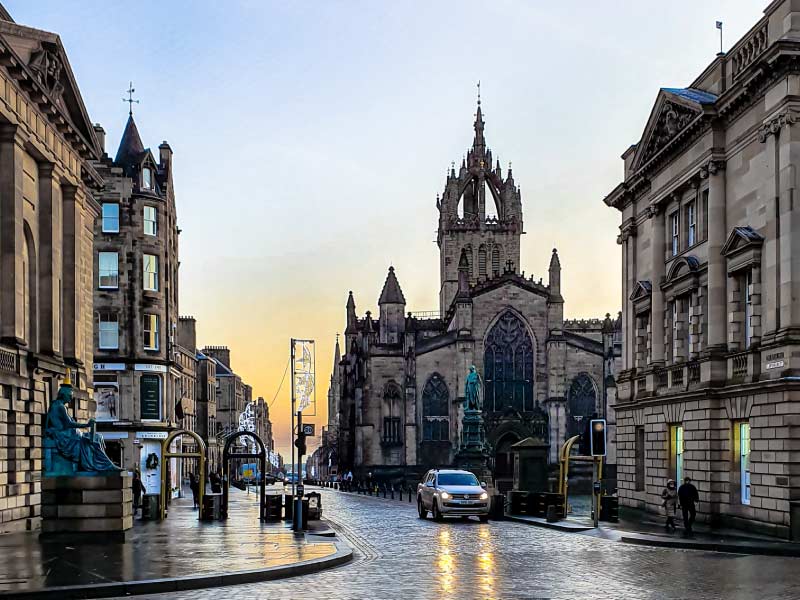
- University Age: 438
- UK Ranking: 4th
- Pint Price: £4.50
- Alumni Notability: 10/10
- A-level Requirements: AAA
- Places Available: 207
- Applicant Success Rate: 08%
- Teaching Style: PBL
- Interview Style: MMIs
- Admissions Test: UCAT
Edinburgh Medical School Alumni
Edinburgh Medical School is associated with 3 Nobel Prize winners, and the School’s graduates have founded Medical Schools and universities globally including Harvard and Yale. Other notable alumni include Robert Sibbald, appointed the first Professor of Medicine at the University of Edinburgh in 1685, founder of the Royal College of Physicians of Edinburgh, and founder of the Royal Botanical Gardens in Edinburgh; Benjamin Bell, considered the first Scottish scientific surgeon, he founded the Edinburgh school of surgery; Sophia Jex-Blake, leader of the first group of female medical undergraduates at a British university; and Sir Arthur Conan Doyle, a graduate of the Edinburgh Medical School who created the fictional character, Sherlock Holmes.

Why did you choose to study at Edinburgh?
“The reason I chose Edinburgh was because I fell in love with the city. It’s a national capital, and yet the haughtiness and aloofness of London and New York hasn’t reached it yet. It is an extremely green and open city, with lots of old architecture that one finds pleasing to the eye after a good 4-hour study session. Also, being the national capital, its connectivity in terms of societies, culture and people is fantastic as well.
Another reason I chose Edinburgh Medical School is because of its wide acclamation in the world (especially the US), and its reputation as a worldwide clinical and academic centre. It boasts a teaching staff that includes top-notch researchers working in world-class facilities, and yet are extremely approachable and rather friendly, I would say.”
What is the best thing and worst thing about Edinburgh Medical School?
“The best thing about Edinburgh is the teaching staff hands down. They are very receptive and open, their teaching style is magnificent, and they are at the top of their fields so they know what they are talking about.
The worst thing, or a bad thing I guess is that there is a disconnect between the Medical Teaching Organisation (the committee managing timetables, exams etc.) and students. Although a lot of surveys and feedbacks are undertaken, there is usually a lack of appropriate and proportionate response. For example, year 1 results were delayed by more than a month and a half, and this distressed students, but there wasn’t a proper response to it. Year 5 students’ exams were preponed without consideration about international students and home students’ preparation time.”
Medical School Rankings
The 2022 UK Medicine League Table has already been published by The Complete University Guide. Edinburgh Medical School takes 4th position with an overall score of 98% and it is the second-highest ranked med school in Scotland.
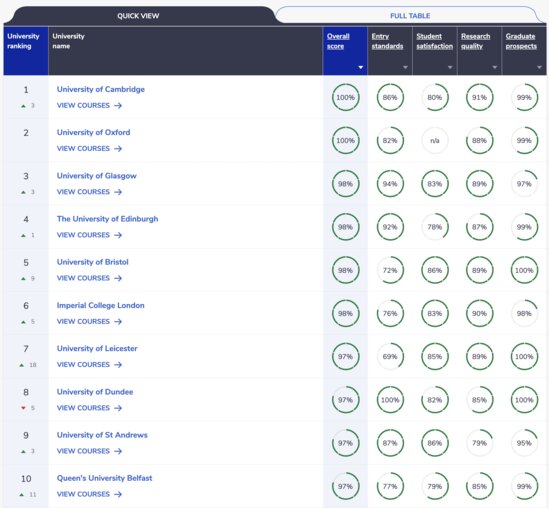
Rankings will, of course, differ between other tables; the Guardian includes different aspects to the Complete University Guide. When making your own decision on which table to look at, think about what you place more importance on, such as spending per student or career prospects. Keep in mind that all Medical Schools are highly ranked with excellent ratings across the board.
Edinburgh Medical School Fees And Financial Support
The yearly tuition fees for pre-clinical and clinical years for a Scottish student is £1,820. If students are from the rest of the UK, fees are £9,250, and if international, pre-clinical years cost £32,100 whilst clinical years cost £49,900.
If you are a first-degree student and a resident of Scotland, you are eligible for your tuition fees to be covered by the Scottish Government. Bursaries, scholarships and other financial aid are also available to all prospective students to help with costs.
What are the living costs like?
“Edinburgh is definitely a bit on the expensive side considering rents but is still cheaper than London. So, for example, if you take a shared bathroom flat in Baird house in Pollock Halls (which is catered), the monthly rent will set you back £787.80 (this is university accommodation). For private accommodation, the lowest rent for a single bedroom flat I have seen is about £350 per month, albeit it would be quite far from the city centre and campus. Public transport is abundantly available and decent, with the cost of a single bus journey (in city zone) about £1.80; or you could get a student pass if you are planning to take the bus a lot. Meal prices are more or less on par with other cities.”
Not sure where to start with your Medical School application?
Our Complete Bundle provides support for your Personal Statement, UCAT, BMAT and Interview and guides you to a successful application.
With our Complete Bundle, we guarantee that you will get at least one offer to study Medicine, or your money back.
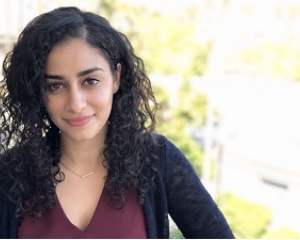


MEDICINE MASTERY BUNDLE
Not sure where to start with your Medical School application?
Get full, comprehensive support for your medical school application with 6med’s Medicine Mastery Bundle. Access everything you need for success as soon as you sign up.
UCAT.Ninja
UCAT.Ninja
What Is Studying At Edinburgh Medical School Like?
The MBChB programme is composed of core and optional courses and is built up from modules that define learning in each year, and themes that are integrated and continue throughout the programme. Pre-clinical teaching is carried out through lectures, group-based learning, feedback on performance and progress, problem-based learning, student-selected components and assessment and formal examinations. Students are mainly taught at the University main campus.
Clinical years involve the addition of ward-based teaching, learning in out-patient clinics and portfolio-based learning. Teaching takes place in Edinburgh’s 3 teaching hospitals, community GP practices and other hospitals across Scotland. Students also have access to the Clinical Skills Centre to facilitate learning.
Edinburgh Medical School Degree Content
There are two Medicine courses offered at Edinburgh. The first is the Undergraduate Course.
Undergraduate Medicine Course
The programme is divided into 3 phases and the curriculum content is designed around 12 major outcome themes: biomedical sciences, psychological aspects of medicine, social sciences and public health, evidence-based medicine and research, the consultation, presentation, diagnosis and management, clinical communication, emergency care, clinical and resuscitation skills, clinical pharmacology and therapeutics, medical informatics, medical ethics, legal and professional responsibilities and personal professional development.
‘Principles for Practice’ (Years 1 and 2) provides an introduction to the scientific, sociological and behavioural principles for the practice of medicine and structure and function of the human body. Students also begin learning practical clinical skills such as resuscitation and interviewing patients.

‘Honours’ (Year 3) allows students to study a scientific discipline of their choice in depth and submit a dissertation on which completion leads to a Bachelor of Medical Sciences (BMedSci) degree. Furthermore, students that are interested in pursuing an academic career have the opportunity to undertake an intercalated PhD, joint between Edinburgh and Glasgow.
Finally, ‘Final Years’ (Years 4, 5 and 6) is an integrated system-based course that addresses all the major body systems and specialities whilst learning in a clinical setting. After final exams, there is a 6-week ‘elective’ period where students have the opportunity to study abroad. Students assist junior doctors and undertake duties expected of them upon graduation.
Summary of the curriculum:
Year 1:
Study of the biomedical and clinical sciences:
- Anatomy
- Physiology
- Pharmacology
- Pathology
- Microbiology
- Social and ethical aspects of clinical practice
The First Professional Examination, completed by the end of the first year, is made up of in-course assignments in the modules and assessments at the end of each semester in Molecules to Society 1 and the end of the Student Selected Component.
Year 2:
- Study of the biomedical and clinical sciences will continue, such as: anatomy, physiology, pharmacology, pathology and microbiology.
- Social and ethical aspects of clinical practice.
- Practical, clinical and research skills are developed through workshops, community projects, and GP-based teaching.
- Three student selected components or projects on a range of topics from the clinical to the non-medical.
- The Second Professional Examination, completed by the end of the second year, is made up of in-course assignments in the modules and assessments at the end of each semester in Molecules to Society 2 and the end of the Student Selected Components.
Year 3:
- Consists of an Intercalated honours year and has a research slant.
- This can include the fields of Experimental Medicine, Biology, Biomedicine, Health Policy and Zoology.
Year 4:
Systems-based teaching, covering:
- Cardiology
- Respiratory
- Neurology
- Endocrinology & Rheumatology
- General Practice
- Principals of Surgery and Orthopaedics
- GI & Liver
- Infectious Diseases
The fourth Professional Examination is made up of module assessments, portfolio case reports for each module and an end-of-year clinical assessment comprising a practical and an online examination.
Year 5:
Systems-based teaching, covering:
- Psychiatry
- Obstetrics & Gynaecology
- General Practice & Neurosciences
- Renal/Urology
- Haematology/Oncology
- Dermatology
- Ophthalmology
- Otolaryngology
The Fifth Professional Examination is made up of ten module assessments, including a Student Selected Component dissertation, portfolio case reports, and a synoptic portfolio-based assessment.
Year 6:
Completes the systems-based learning, covering:
- Medicine/General Practice
- Medicine of the Elderly
- Surgery/Emergency Medicine & Acute Care
- Child Life & Health
Three-week assessment period of Finals Part 1 in February. The final assessments include an oral examination or Viva based on the portfolio, a Clinical Practice Examination (CPE) and a Safety in Practice and Prescribing (SIPP) online examination, based on clinical scenarios.

The other Medical Course is the Graduate Course.
Graduate entry students have the opportunity to skip the intercalated Year 3 research project and progress straight from Year 2 to Year 4. Other than this, the course remains the same as the undergraduate course.
What Makes Edinburgh Medical School Unique?
What makes your Medical School unique?
“One of the most fascinating things about the Med school would be its long and exciting history. It was established in 1726, and boasts world-famous researchers like Joseph Lister, who developed anti-septic techniques. If history means nothing to you (and all the philosophical debate that goes on with it), then the foremost attractive feature of the program would be a top-notch medical school program, complemented by a great clinical exposure in the form of the Edinburgh Royal Infirmary, Western General Hospital, which are centres of excellence in Scotland and the UK. Moreover, the strong emphasis on research and the intercalated degree gives Edinburgh graduates an edge in a world benefitting daily from covid research.
Students can also undertake a 3 year PhD in oncology if they want as well. Another thing that distinguishes Edinburgh from other schools is its PBL program; it really benefits communication, leadership and self-learning skills and complements the medical school curriculum beautifully. The PBL sessions are fun, inclusive, and sometimes really intensive.”
Edinburgh Medical School Entry Requirements
Edinburgh Admissions Statistics
| Number of applicants | |
| Applications per place | |
| Number accepted | |
| Success rate |
| Exam | Undergraduate Medicine |
|---|---|
| SOA Highers | AAAAB by end of S5 and BB at Advanced Higher, must include Chemistry and 2 from Biology, Mathematics or Physics. |
| A-level | AAA, must include Chemistry and 1 from Biology/Human Biology, Mathematics or Physics. |
| IB | 37 points with 766 at HL, must include Chemistry and 1 other science subject. |
| Exam | Graduate Medicine |
|---|---|
| Degree | Upper second-class honours in a Biology, Chemistry, Mathematics or Physics-based subject. |
Widening Access
| Exam | Widening Access |
|---|---|
| SOA Highers | AAABB by end of S5 and CC at Advanced Higher. |
| A-level | AAB |
| IB | 36 overall with 666 at HL. |
Edinburgh believes everyone deserves an equal opportunity to study Medicine and show their academic potential. Depending on your circumstances, they may offer a ‘Widening Access Offer’ that has different entry requirements.
Factors considered include postcode and level of deprivation in your area, level of educational attainment at your school, whether you are care-experienced and whether you are a refugee or asylum seeker. Students with Widening Access complete the same programme as other undergraduate students.
Craft an application worthy of Edinburgh with 6med!
Our Complete Bundle provides support for your Personal Statement, UCAT, BMAT and Interview and guides you to a successful application.
With our Complete Bundle, we guarantee that you will get at least one offer to study Medicine, or your money back.



MEDICINE MASTERY BUNDLE
Craft an application worthy of Edinburgh with 6med!
6med’s Medicine Mastery Bundle provides you with the best support for your Personal Statement, UCAT and Interview, ensuring you will earn your offer.
Personal Statement Crash Course
Personal Statement Crash Course
Edinburgh Medical School Personal Statement
Edinburgh Medical School want to hear all about you! They are focussing on your personal qualities and skills such as empathy, interpersonal relationships and ability to communicate, which are all integral to being a good doctor.
Evidence of career exploration is also key, with an understanding of the realities of a medical career. Importantly, Edinburgh value quality of experience over quantity and it’s always important to remember to reflect on what you have experienced!
Maintaining a healthy study/life balance while studying Medicine is essential, and Edinburgh look for evidence of outside interests such as extracurriculars and volunteering. Edinburgh use your personal statement as the basis for part of their interview, so make sure to know it inside out!
Edinburgh Medical School Admissions Tests
UCAT
All applicants need to sit the UCAT in order to apply to Edinburgh Medical School. Edinburgh has no minimum required score. They also consider the Situational Judgement section of the test separately – a score of Band 4 won’t be considered for entry. The BMAT is not required.
As a guide for what score to achieve. In 2021, the average UCAT score for applicants who were invited for interviews was 2,913 and the average score for offer holders was 2,981. All applicants who were given an offer were placed in the 1st and 2nd Decile.
Edinburgh Medical School Interview
MMI Interview Style
The Edinburgh Medicine interview involves an assessment half day with an MMI. The MMIs consist of three 10 minute rotations that cover communication skills, critical and ethical reasoning and career exploration (based on your personal statement). Interviewees have 20 minutes to undertake some preparation work before the interviews commence.
Example Edinburgh Medical School Interview Questions:
- Why is Medicine the right career choice for you? (2018)
- What was the most important thing you learned during work experience and how will this be useful to you in the future? (2019)
- What was the most eye-opening thing you saw during work experience? (2021)
- After seeing skills needed by healthcare professionals during work experience, what skills do you think you need to improve for the future? (2020)
- Who is part of the multi-disciplinary team and why is teamwork important in Medicine? (2020)
- After your work experience, did you think of anything you would want to do to improve NHS healthcare settings? (2019)
- Which qualities make you suited to this course? (2021)
- Describe a time in your life where you have had to show compassion. (2019)
- How do you maintain a good work-life balance? (2021)
- What do you enjoy outside of your studies? (2021)
- After your work experience, did you think of anything you would want to do to improve NHS healthcare settings? (2021)
- You are on the committee for organising an information evening about a GP surgery’s flu vaccination day. Pitch your idea to everyone. (2021)
Extra-Curriculars at Edinburgh Medical School
Outside of study time, what do most people get up to?
“Edinburgh Medical School actively encourages you to take part in activities outside the school and has a lot of medic/non-medic clubs and societies to facilitate that. Lots of people I know are engaged in some kind of sport, for example, Medics Hockey is extremely popular among, you guessed it, medics. People are also involved in music; for example, I came to know about the ukulele only when I saw a couple of friends playing it here in Edinburgh (I have been living in a cave, I know). If outdoor sports is your thing, then Edinburgh should excite you very much; we have a hill called Arthur’s Seat (right behind Pollock Halls) where you might find your course mates coming down after a good trek on a windy evening.
We have a good university gym and I think most of the indoor sports as well. If your dispositions lean towards the nerdier side, there are a lot of debate clubs and a TEDx society as well. I know a couple of people who are actively involved in volunteering with charities like Cancer Research and Shelter Scotland. Another qualifying extra-curricular activity is that quite a few people like to get together and have a few drinks every now and then!”
What is the Edinburgh accommodation like?
“The accommodation is alright, I guess. There is the standard catered halls, the Pollock Halls. Rent can run up a bit steep, from £787 per month up to £1000. You can opt for a flat with an en-suite bathroom or go for a shared one. Pollock Halls is a massive complex, housing hundreds of students, which gives it a rather notorious name for first-year parties and shenanigans. It has a bit of a posh reputation, but honestly, you will find all kinds of people everywhere.
The food served in the JMCC (a large hall where you’ll dine) is usually decent. The options for vegetarian/vegan food are really limited, and if you can cook decent food, you might want to opt for a non-catered flat. However, the location of Pollock Halls is rather glorious; it has the huge Holyrood Park right behind it with Arthur’s Seat, the good shops of Newington, the meadows right by, and the campus a short 15-minute walk away. It’s also good for trips to the Royal Infirmary (for studies, of course), as I believe it’s the closest accommodation to the BioQuarter.
There are other non-catered accommodations sprinkled around the city, the most popular one that springs to mind is Brae house. Brae is rumoured to have the most legendary social life and parties, but I personally feel that if you want a wild first year, you ought to choose Pollock. One red flag about Brae is that it is a bit far off from the campus and located in a bit of a seedy area. Other accommodations are fine as well and fairly close.”
Edinburgh Medical School Contact
Email: [email protected]
Phone: +44(0)131 242 6531
Postal address:
Room SU219, 2nd Floor
The Chancellor’s Building
Edinburgh BioQuarter
49 Little France Crescent
Edinburgh
EH16 4SB
Advice for Prospective Edinburgh Medical School Students
What advice would you give to a first-year student starting at Edinburgh Medical School?
“If you want to gain an edge over others, prepare beforehand for tutorials and lectures. I can guarantee you that those who do prepare beforehand come out with a better working understanding of the topics discussed. I know it’s hard, but it’s worth it.
The only way that I have seen anybody keeping on top of their academic schedule is by doing most of their week’s work on a Sunday. I know it’s a rotten way of spending your Sunday, but hey, you don’t get something for nothing.
Edinburgh runs a great way of revising for exams and testing our knowledge: an online MCQ system called PeerWise, where all coursemates can make and answer questions. My advice is to get on that system every weekend and exhaust its question bank religiously. It makes us step out of our bubble of perceived wisdom and confront uncomfortable truths about actual learning.”
Check out our other UK Medical School Reviews:
Not sure where to start with your Medical School application?
Our Complete Bundle provides support for your Personal Statement, UCAT, BMAT and Interview and guides you to a successful application.
With our Complete Bundle, we guarantee that you will get at least one offer to study Medicine, or your money back.



MEDICINE MASTERY BUNDLE
Not sure where to start with your Medical School application?
Get full, comprehensive support for your medical school application with 6med’s Medicine Mastery Bundle. Access everything you need for success as soon as you sign up.
MMI Crash Course
MMI Crash Course
By Phoebe Baker

